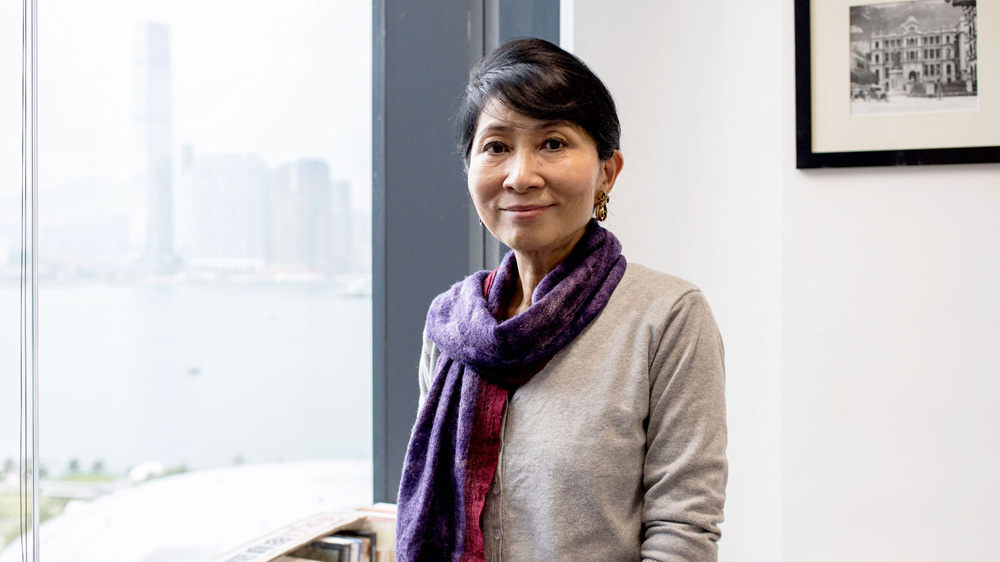Jail in Hong Kong for booing China's national anthem

Hong Kong, China - Mocking China's national anthem in this semi-autonomous territory will soon be punishable by three years imprisonment following new legislation drafted by Beijing.
While the law must still be finalised, football fans have made a stand at recent games where the anthem - March of the Volunteers - was played.
A number of Hong Kong people have booed, held banners, and chanted "We are Hong Kong" despite claims by China's adviser to the special autonomous region, Elsie Leung, that the law could be applied retroactively. http://hongkongeye.org
The football pitch is an unlikely spot for a political match to go down, but in Hong Kong this is where opposition to the so called "anthem law" has been heard most fiercely. Student Kin Wa Chung was one of the attendees who booed and brought a "Hong Kong is not China" flag to recent matches. He explained through an interpreter that - following the ousting of four pro-democracy lawmakers in July - he felt like protest was the only way to speak out. "Since these people have been disqualified, we don't have a channel to raise our voice and express our views," he told Al Jazeera. Chung said the government doesn't hear the voice of the people, or listen to the reasons why the anthem was booed. He called this "a kind of oppression". |
| Kin Wa Chung was one of the people booing at recent matches [Jeremy Smart/Al Jazeera] |
Outlawing boos
Under the governing "one country, two systems" formula, Hong Kong's legal system is separate from that of mainland China. The anthem legislation has already been approved by the National People's Congress and brought into effect on the mainland. But in Hong Kong, it must be locally drafted before it can be enacted as law and ultimately enforced. Initially agreeing with Leung's threat to backdate the legislation, Hong Kong's Chief Executive Carrie Lam later clarified this was unlikely. Despite uncertainty around retroactive enforcement, the boos continue. Pro-establishment politician Holden Chow said while protesters and their message only make up a minority in Hong Kong, he considers the booing concerning. "Those sort of behaviours certainly show disrespect to the national anthem and also shows some sort of disrespect to our own country. I think that provoked many people – including myself," he told Al Jazeera from his office in the Legislative Council Complex. "These sort of incidents would trigger concern in the mainland, because from the central government's perspective, or even from a Chinese perspective, you wouldn't like to see that sort of thing happening. You don't want people to insult your own country." |
| Pro-establishment politician Holden Chow says booing the anthem at football matches is disrespectful [Jeremy Smart/Al Jazeera] |
'Respect earned, not demanded'
Claudia Mo is a pro-democracy politician who believes the legislation is purposefully forceful and at odds with Hong Kong's identity. The territory was under British rule from 1841 until 1997 when it was returned to China. "In the last 20 years, Hong Kong people have woken up to the fact that communism is really incongruous with the way we've been living in Hong Kong," Mo said. "To the Chinese, it's a huge loss of face: 'How dare the Hong Kong people, especially the young, display such a disrespect to the national anthem.' They want to make sure that if you're disobedient, you know the price to pay and that is they can put you in jail." While incarceration may be an effective scare tactic, Mo said this will not generate respect among those who want political change. "In English we say respect is something earned, not demanded. They think that once the law becomes law, everything will settle, and that's just idiotic on their part. And I don't think they are actually that idiotic. "They knew they couldn't win Hong Kong people back, especially the young, so they can only do it the harsh way. It's this parental attitude: 'I'm your mother, I'm your father. I'm the provider, so you better listen to what I have to say.'" |
| Pro-democracy politician Claudia Mo said the proposed law is 'just idiotic on their part' [Jeremy Smart/Al Jazeera] |
Comments
Post a Comment